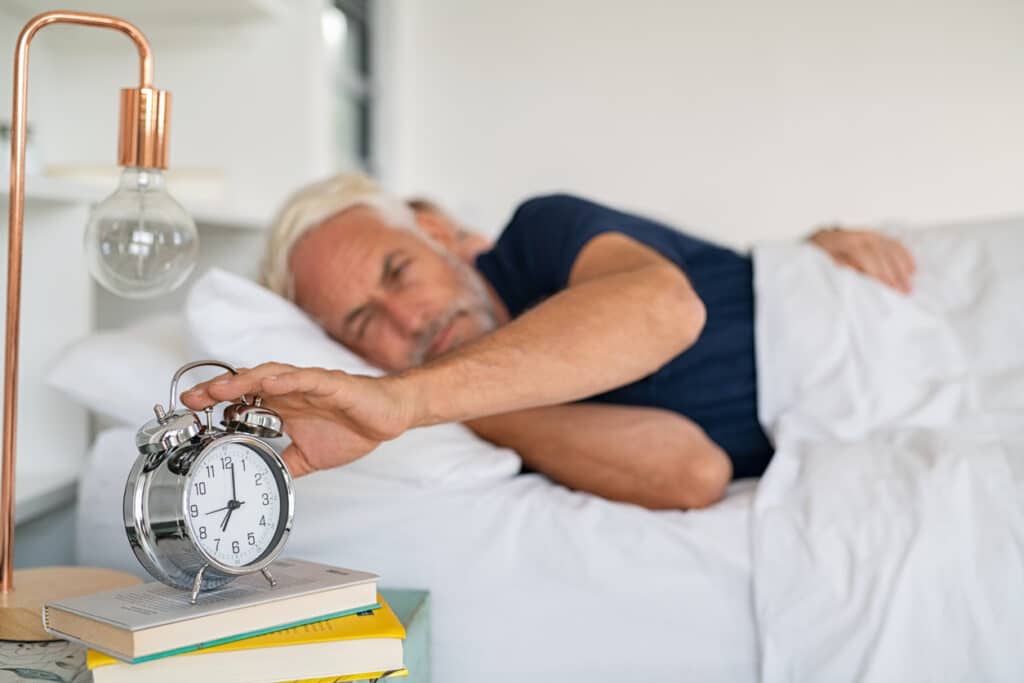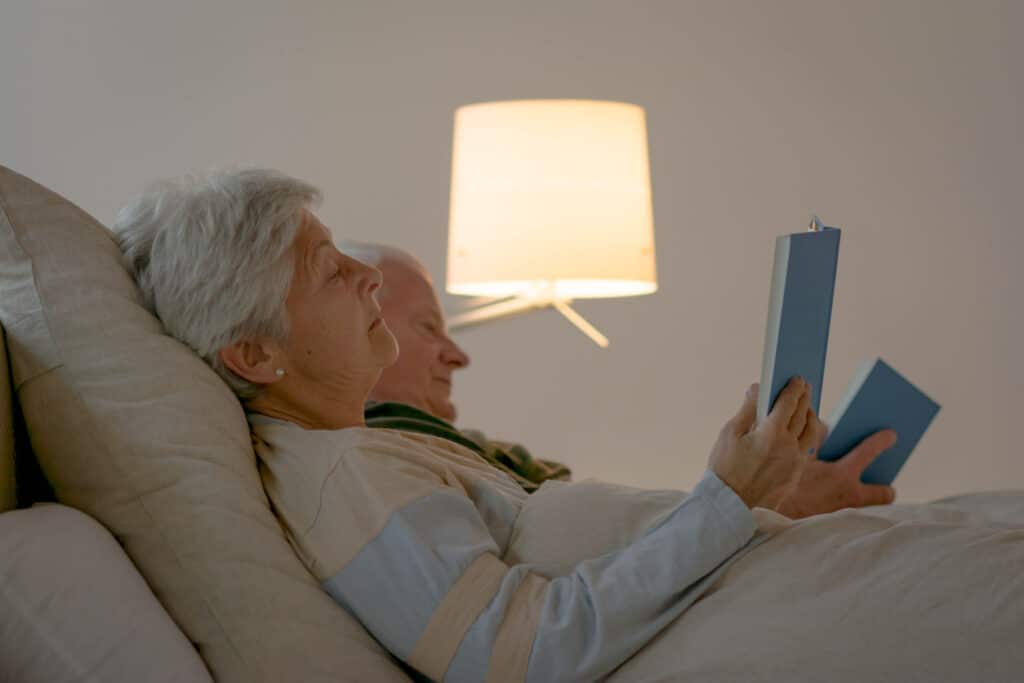
Aging adults often experience sleep difficulties. Physical and mental conditions can interfere with sleep, as can medications commonly taken by seniors. Lack of sleep can impact quality of life and raises the risk of accidents and falls in older adults. Long-term effects of sleep deprivation include inability to concentrate, mood changes, memory problems, and a weakened immune system.
The following are common issues that may affect the amount and quality of sleep for seniors:
Medical Conditions
Some medical conditions can affect the bladder, keeping people up at night. The urge to urinate or incontinence may wake people up from a sound sleep. Hormonal changes after menopause and weak bladder and pelvic floor muscles are common among women over the age of 50. An enlarged prostate gland is a common issue for aging men. Diseases such as diabetes, Parkinson’s disease, and multiple sclerosis can damage nerves that control the bladder. Excessive coughing from COPD puts pressure on the bladder, causing incontinence.
Arthritis may affect mobility, making it difficult for seniors to get to the bathroom in time. Other medical conditions that may have adverse effects on sleep quality include chronic pain, asthma, acid reflux or other gastrointestinal conditions, restless leg syndrome, sleep apnea, and snoring.
Medications
Prescriptions and over-the-counter drugs can have side effects that keep people awake or cause them to wake up during the night. Diuretics taken to control blood pressure cause the need to urinate more frequently. Alpha blockers taken for heart problems can cause incontinence. Antidepressants can prevent the bladder from emptying completely. Muscle relaxers can cause drowsiness but also relax the urethra. Antihistamines such as Benadryl can relax the bladder. Sedatives can decrease awareness of the need to urinate, causing wetting during the night.
Lifestyle Choices

Daily routines and lifestyle choices can interfere with quality sleep. Extended napping or napping too late in the day means people are less tired at bedtime. Drinking alcohol or caffeine before bedtime can interfere with the ability to fall asleep. A sedentary lifestyle can lead to poor sleep quality.
Tips for a better night’s sleep

Exercise regularly. Those who exercise fall asleep faster and sleep longer. Senior fitness programs like Geri-Fit, offered at Renaissance Villages help to promote overall well-being and better quality sleep.
· Reduce distractions at bedtime. Turn off the TV, electronics, cell phone, and bright lights. A small nightlight is fine for safety reasons.
· Develop a regular sleep schedule. Try to go to bed and wake up at the same time each day. Engage in a quiet and relaxing activity before bed, such as reading.
· Avoid large meals late in the day and reduce alcohol and caffeine intake in the evening.
Seniors who have trouble falling asleep at night or staying asleep should talk to their doctor about what may be causing the problem.
Next Steps
Renaissance Villages in Murrieta offers independent living, assisted living, and memory care options for full-time residents. Contact us to learn more and schedule a tour of our facilities.

